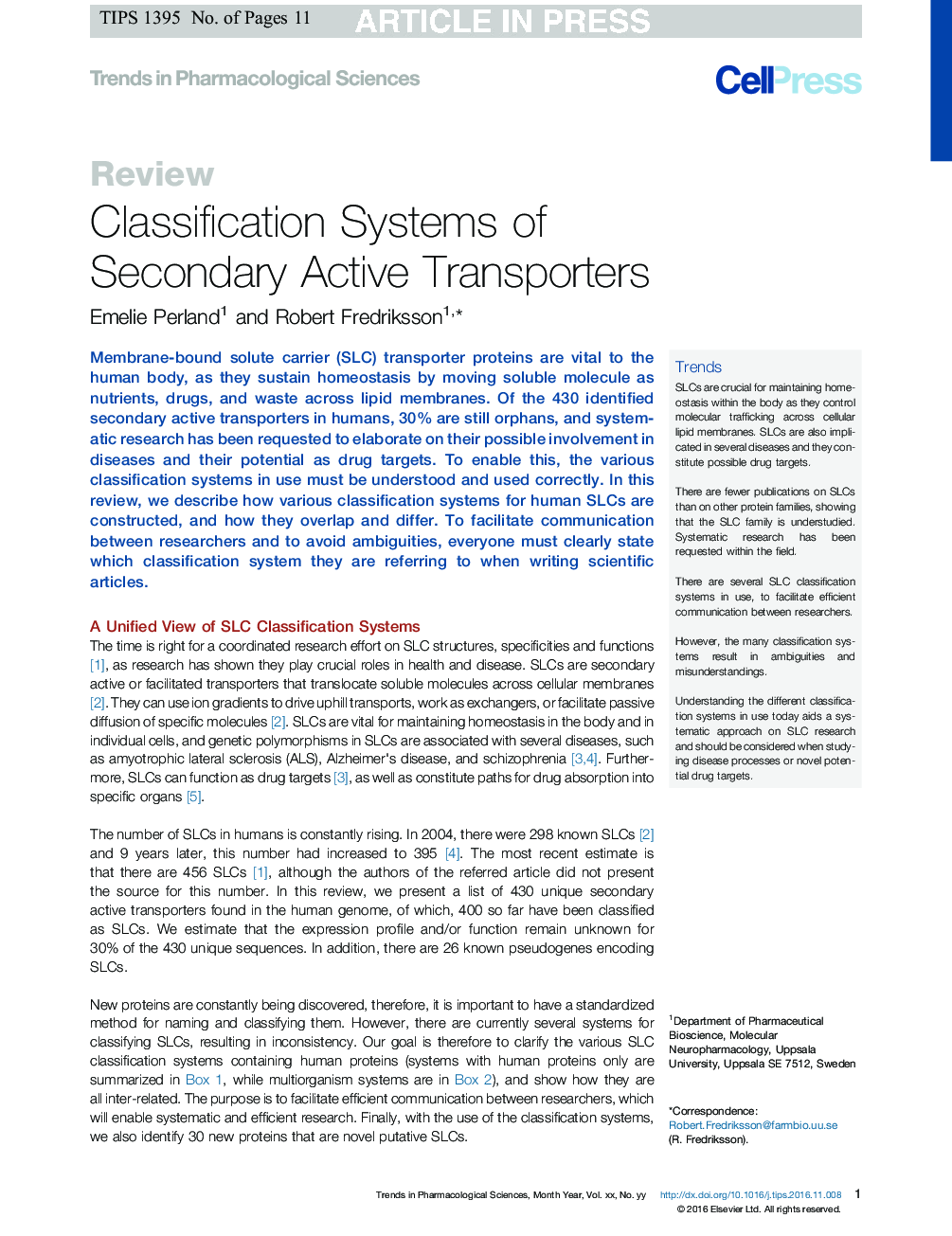| Article ID | Journal | Published Year | Pages | File Type |
|---|---|---|---|---|
| 5558844 | Trends in Pharmacological Sciences | 2017 | 11 Pages |
Abstract
Membrane-bound solute carrier (SLC) transporter proteins are vital to the human body, as they sustain homeostasis by moving soluble molecule as nutrients, drugs, and waste across lipid membranes. Of the 430 identified secondary active transporters in humans, 30% are still orphans, and systematic research has been requested to elaborate on their possible involvement in diseases and their potential as drug targets. To enable this, the various classification systems in use must be understood and used correctly. In this review, we describe how various classification systems for human SLCs are constructed, and how they overlap and differ. To facilitate communication between researchers and to avoid ambiguities, everyone must clearly state which classification system they are referring to when writing scientific articles.
Related Topics
Life Sciences
Neuroscience
Cellular and Molecular Neuroscience
Authors
Emelie Perland, Robert Fredriksson,
